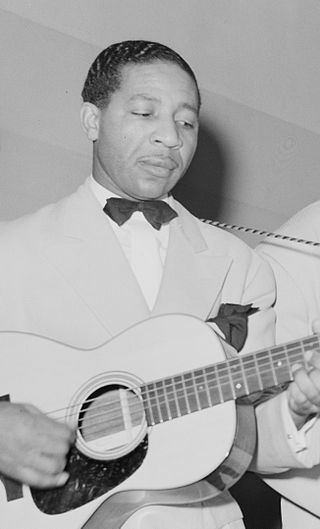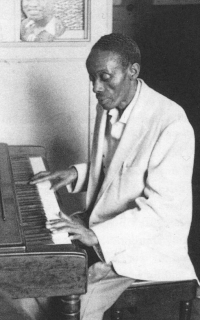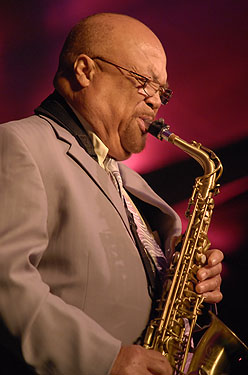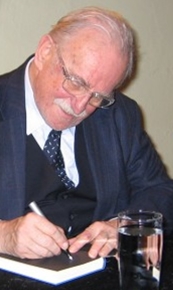Robert Ross is an American blues singer, songwriter, acoustic and electric guitarist, slide guitarist, and harmonica player. He is the leader of the Robert Ross Band and The Jazz-Manian Devils. He also performs as a solo artist.

Robert Lockwood Jr., a.k.a. Robert Jr. Lockwood, was an American Delta blues guitarist, who recorded for Chess Records and other Chicago labels in the 1950s and 1960s. He was the only guitarist to have learned to play directly from Robert Johnson. Robert Lockwood was one of the first professional black entertainers to appear on radio in the South, on the King Biscuit Time radio show. Lockwood is known for his longtime collaboration with Sonny Boy Williamson II and for his work in the mid-1950s with Little Walter.

Joseph Lee Williams was an American Delta blues guitarist, singer, and songwriter, notable for the distinctive sound of his nine-string guitar. Performing over five decades, he recorded the songs "Baby, Please Don't Go", "Crawlin' King Snake", and "Peach Orchard Mama", among many others, for various record labels. He was inducted into the Blues Hall of Fame on October 4, 1992.

Alonzo "Lonnie" Johnson was an American blues and jazz singer, guitarist, violinist and songwriter. He was a pioneer of jazz guitar and jazz violin and is recognized as the first to play an electrically amplified violin.

James Burke "St. Louis Jimmy" Oden was an American blues musician and songwriter.
Victoria Regina Spivey, sometimes known as Queen Victoria, was an American blues singer, songwriter, and record company founder. During a recording career that spanned 40 years, from 1926 to the mid-1960s, she worked with Louis Armstrong, King Oliver, Clarence Williams, Luis Russell, Lonnie Johnson, and Bob Dylan. She also performed in vaudeville and clubs, sometimes with her sister Addie "Sweet Peas" Spivey, also known as the Za Zu Girl. Among her compositions are "Black Snake Blues" (1926), "Dope Head Blues" (1927), and "Organ Grinder Blues" (1928). In 1961, she co-founded Spivey Records with one of her husbands, Len Kunstadt.
The American Folk Blues Festival was a music festival that toured Europe as an annual event for several years beginning in 1962. It introduced audiences in Europe, including the UK, to leading blues performers of the day such as Muddy Waters, Howlin' Wolf, John Lee Hooker and Sonny Boy Williamson, most of whom had never previously performed outside the US. The tours attracted substantial media coverage, including TV shows, and contributed to the growth of the audience for blues music in Europe.

Ace Records Ltd. is a British record label founded in 1978. Initially the company only gained permission from the similarly named label based in Mississippi to use the name in the UK, but eventually also acquired the rights to publish their recordings. When Chiswick Records' pop side was licensed to EMI in 1984, Ace switched to more licensing and reissuing work. In the 1980s it also gained the licensing for Modern Records, and its follow-up company Kent Records, whilst in the 1990s, the company bought the labels including all original master tapes.

James Wesley "Red" Holloway was an American jazz saxophonist.

The San Francisco Blues Festival was active from 1973 until 2008, and was located in San Francisco, California. It was the one of the longest running blues festival in the United States.
Leonard Gaskin was an American jazz bassist born in New York City.
Black & Blue Records was a record company and label founded in France in 1968 that specialized in blues and jazz.
Document Records is an independent record label, founded in Austria and now based in Scotland, that specializes in reissuing vintage blues and jazz. The company has been recognised by The Blues Foundation, being honoured with a Keeping the Blues Alive Award in 2018. Document Records is the only UK-based recipient of the award.

"Don't Start Me Talkin'" is a blues song written and performed by Sonny Boy Williamson II. It was Williamson's first single recorded for Checker Records, and reached number three in the US Billboard R&B chart in 1955.

Fritz Rau was a German music promoter, who was influential in the development of the appreciation of jazz and blues music in Europe in the 1950s and 1960s, and has since been a leading promoter of rock and pop music. He was nominated to the Blues Hall of Fame in 2012, together with his former business partner Horst Lippmann.
Ransom Knowling was an American rhythm and blues musician, best known for playing bass on many blues recordings made in Chicago between the 1930s and 1950s, including those of Arthur Crudup and Little Brother Montgomery.
Warren George Harding Lee, known professionally as Lee Jackson, was an American Chicago blues guitarist, bass guitarist, singer and songwriter. Although he did release a number of recordings in his own name, such as Lonely Girl (1974), he is most known for his work on recordings with other blues musicians such as Johnny Shines, Willie Dixon, Jimmy Reed, J. B. Hutto, Sunnyland Slim, Lacy Gibson, and Little Walter. AllMusic noted that "the playing style of Jackson is vastly influential".
Joseph Doctor, known as Washboard Doc, was an American New York blues musician, who specialised in playing the washboard. He recorded with Victoria Spivey, Alec Seward, Paul Oscher, Screamin' Jay Hawkins and Big Joe Turner among others.
William J. Dicey was an American blues harmonicist, singer and songwriter. He recorded two live albums and one studio album in his own name, as well as playing the harmonica and singing on a number of other musician's recordings. He was a regular fixture in the New York blues scene from the 1970s to the time of his death.








